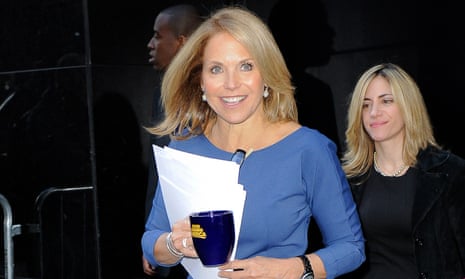Verizon has acquired Yahoo in an all-cash deal for $4.83bn. The buy-out, which only covers Yahoo’s “core web business”, is an ignoble end for one of the original giants of the web: it places the value of the company, with more than 10,000 employees, at just half that of Finnish developer Supercell, the maker of the popular Clash of Clans mobile game.
But perhaps the most surprising thing is quite how much Verizon is getting for its money. If you have an image of Yahoo at all, you probably know it as a search engine (now actually powered by Microsoft’s Bing, and before that by Google) and a listings site (originally a literal hand-created directory of good sites on the internet, now more focused on the company’s news aggregation service). But for those who haven’t kept tabs on Yahoo’s continued struggles to reinvent itself, the company is now sprawling, with fingers in almost every pie a web firm could want.
Here is just some of the bang Verizon’s getting for its buck.
Your teenaged posts from 2009
The Velvet Underground of social networks, Tumblr is the site that everyone cool is on, but no one with money seems to care about.
Founded in 2007 by then 21-year-old David Karp, and bought by Yahoo in 2013, the site lies somewhere between blogging platform, social network, and image board. It lets users create fully fledged blogs (heck, Yahoo announced the Verizon deal on its own Tumblr), but with a smattering of networking tools that allowed it to grow as a platform for individual communication as much as broadcasting missives to the world.
Since it was acquired, Tumblr has been kept relatively separate from the Yahoo mothership, a choice which pleased the site’s largely young, counter-cultural userbase (half its users are under 25). It also means that, without really noticing, Verizon has just bought a social network with more monthly active users than Twitter for almost a third the cost. Oh, and it got the entirety of Yahoo for free alongside.
Your pictures from 2005
Before Yahoo bought and ignored Tumblr, it bought and ignored Flickr. The image-hosting site, founded by a group that would go on to create the enterprise chat company Slack, was launched in 2004 and bought by Yahoo in 2005.
Flickr offered free, high-quality image hosting for 200 images, and users could pay to host an unlimited number on the site. Compared with the image-hosting sites available options at the time, it was miles ahead, but the site also had a thriving photography community, sharing tips on how to take better pictures and promoting fair use and re-use of images through creative commons licenses.
But the site failed to adapt to the mobile revolution. Official apps came too late, and were updated too rarely, which allowed more phone-focused startups to dominate the smartphone photography scene. Instagram in particular came to gain from Flickr’s fumble. Despite a few app updates that added in features missing from the start, Flickr never again regained the lead, although its community still numbers in the millions.
Your emails from 1999
You may not know many people who use it, particularly if you’re based outside of the United States, Yahoo Mail is one of the biggest webmail services in the world. The service has steadily evolved since its launch in 1997, as Rocketmail, the webmail service of business directory firm Four11. It was acquired that same year by Yahoo, and rebranded soon after, but the transition was a rocky: most notably, the company started charging for client access, requiring free users to visit the site through their browsers.
Since then, the service has gone through rapid iteration, with major new redesigns launching in 2002, 2004, 2010, 2011, 2013 and 2015. But none were able to bring the big guns against the site’s major competitors: first Microsoft’s Hotmail, and later Google’s Gmail.
Even so, the service has led the way in a number of features, becoming one of the first to introduce password-free logins for casual users with Yahoo Key in 2015 (which texts a one-time password to a pre-registered phone number), and enabling end-to-end encryption for power users that same year.
Katie Couric and David Pogue
Under the chief executive, Marissa Mayer, Yahoo tried to parley its dominance of the old web – chiefly through the millions of users who still have the site set as their homepage – into dominance of old media. Two emblematic hirings of that period were ABC News anchor Katie Couric and New York Times columnist David Pogue, who both joined Yahoo in 2013.
But while Yahoo News is a massive force in online media, with more readers than any other news site according to stats firm Quantcast, the prestige hirings never quite gelled with the wider company. Its attempts to push video content hard culminated with the company buying the rights to make the sixth series of the sitcom Community, before eventually closing the division that made it entirely.
And what it hasn’t bought …
The Verizon deal is so low-valued in part because it includes Yahoo’s core business, but not its investments in other companies. Two of those investments in particular are left out of the deal: the company’s stakes in Yahoo Japan and “China’s Amazon”, AliBaba. Those stakes, combined, are worth around $40bn, according to Reuters.
And just to illustrate the dire straits Yahoo was in before the buyout: its market cap, which included its cash pile and those $40bn investments, was just $37bn. In other words, investors valued Yahoo’s core business at around minus three billion dollars. So selling to Verizon for almost $5bn is actually a fairly good deal.
